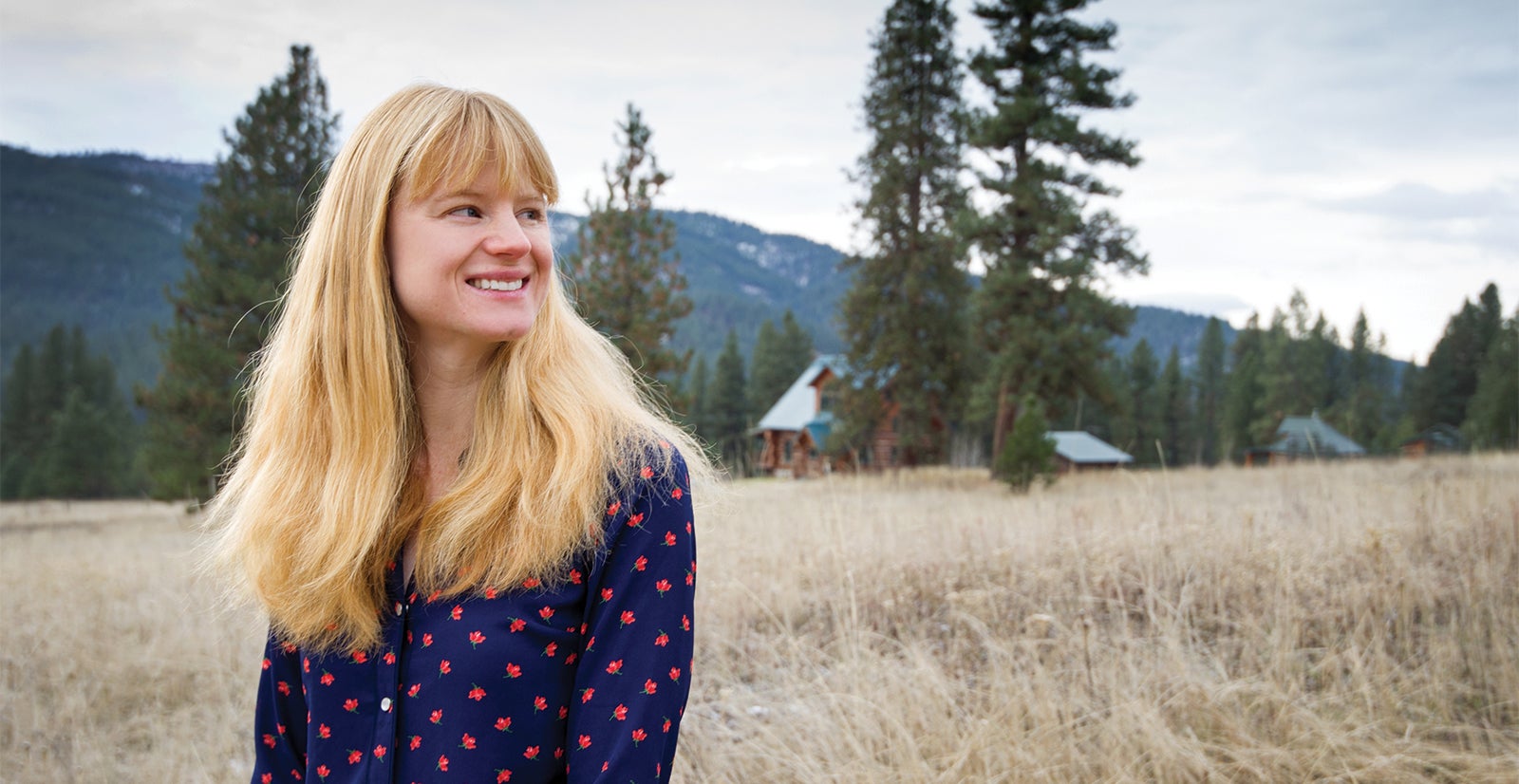Emily Ruskovich – author, O. Henry Award winner and assistant professor of creative writing at Boise State, opens up about her process of writing and researching her breakout debut novel “Idaho.”

Imagination is a word more often associated with storytelling than research. However, good fiction writing requires both – a creativity that allows writers to craft characters and situations that feel real, and a dedication to bolstering the worlds they create with good research.
“Idaho” opens with a mysterious tragedy, which results with one mother imprisoned and another woman, a stranger, trying to make sense of the situation. How did you approach writing and researching this novel?
I didn’t do much research at first. I wanted to write based on what I felt, imagined and believed. I wrote without knowing things for certain – I didn’t know details on how women’s prisons work, for example. I wrote without knowing the details because I didn’t want research to interfere with the emotional parts of those chapters. Occasionally I’d look up basic facts about early onset dementia, Alzheimer’s, or how long after someone enters a guilty plea they’re sentenced, but overall, most of the research I did was after the first draft.
When you entered that research phase, did anything you uncover drastically change the tone or direction of your story?
The one area in which I was really guided by research was in the history of the naming of the state of Idaho – in that way, research was an integral part of the story. That process was really delightful to me because it was the one area in which I felt like a detective, looking for sources, trying to piece together this very confusing historical timeline. This research led me to something my imagination wouldn’t have come up with, which was that Idaho was ultimately named after two little girls. It was a gift because my book is about two little girls.
How did your research strengthen the narrative you’d created?
Even if it’s not used in an overt way, research adds conviction to your words. I read about women in prison: it was full of facts about what it’s like to be in prison, how many women were in prison for crimes that were caused by men – all of this information is on the periphery of the story. It reinforced what I had already imagined.
Did your research include talking to or interviewing people?
Yes, that’s a kind of research all on its own – listening to people talk. In that way it’s like you research for a book your whole life. The first time I learned what Alzheimer’s was it latched into me. I could never forget it, and once I knew what it was, all of these stories that I might not have heard or listened to opened up. I paid attention to them because it affected me so much. The most important research was listening and trying to understand what Alzheimer’s would feel like.
How do you teach your students about the importance of research?
At the undergrad level, what I want to teach most of all to students is “write what’s important, what you feel and what you know.” Even when put in a context you don’t know much about, learning to talk about how you felt – it’s not research, per se, maybe it is but on an emotional level. It’s important to pay attention to details and emotions. I’d say that research comes in after you have the heart of it. For instance, I wrote a piece on historical fiction, a short story that took place the year Idaho became a state. I didn’t know anything about the time period – like what inventions were around back then. I wrote blindly, I wanted to feel a certain way and I needed to not care what mistakes I might make.
When you go back, do your research and make corrections, you can find out that things you’ve written are impossible. But then it’s a fun puzzle, like “how do I create the same emotional response using a different plot device?” These constraints can be very freeing in a way, having these rules placed on your imagination in a way frees your mind to consider new possibilities, pockets of thought that might surprise you.
I do think that being true to the past and facts is really important. When you read a piece of fiction that you know is wrong, the fictional dream is disrupted and you think, “If the author got this detail wrong, what else did they get wrong?” Research is critical but how it works in the writing process is mysterious and hard to teach. It’s when you encounter problems in research that you notice it and its importance. But when it’s integrated well, you don’t really pay attention to it.